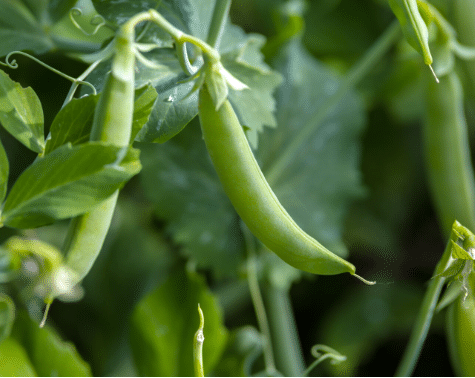Paulus Kosters is Technical Director of Cosun Protein and works together with others engaged in the development of plant-based proteins. According to Paulus, the importance of collaboration in this area is significant and covers the entire width of the sector. “For the successful development of new plant-based proteins, transitions are needed both in the field and within the chain,” says Paulus. “New crops and applications increase the need for new approaches to, for example, crop improvement, crop protection, extraction and the processing and structuring of the factory process. The latter steps of extracting and processing in the factory are my focal area within Fascinating.”
Multipurpose protein factory
One of the largest projects within Fascinating entails research into the feasibility of building a multipurpose protein factory in the province of Groningen. Paulus continues, “Together with our partners, we are exploring ways to use technology to arrive at a profitable business model for extracting new plant-based proteins from different crops.” By doing this in partnership within Fascinating, four major cooperatives (AgriFirm, Avebe, Cosun and FrieslandCampina) can combine their knowledge and reduce the risk for the individual stakeholders. “You really do need each other because of such aspects as the seasonal moderation of these new protein crops. Beet and lucerne leaves, for example, are only available for processing a few months out of the year and potato protein cannot be produced year-round either. You cannot run a factory only a few months a year because this is simply not profitable. Utilising the factory jointly based on different raw materials keeps the capacity utilisation rate high.”
Looking for overlap
For successful collaboration in the factory, the different factory processes need to be re-examined, believes Paulus. “You need to find the technological overlap within your processes. You are essentially all working towards creating a whitish protein powder. The different steps of the process, such as extracting the protein from the product and then concentrating, purifying and drying it, are largely similar.” This means that the factory can be converted for the processing of different products, making it multipurpose.

Cosun is working on developments related to the growing, extracting and processing of new plant-based proteins
Careful handling
To maintain the functionality of a protein, it must be handled very carefully. Bruising or heating can result in a protein no longer functioning as intended. A boiled egg, for example, does not make your pancake batter fluffier. It’s the same with plant-based proteins. Paulus continues, “You need to develop a process that maintains the functionality of a protein from start to finish, but that also results in an extractable and safe product. This gentle processing is the essence of the ultimately commercially successful processing of raw materials into a functional ingredient.”
A clear advantage
Paulus sees all kinds of advantages in new functional proteins. “We can use these new proteins to replace animal proteins in plant-based products in terms of both nutrition and functionality.” In this sense, proteins have an advantage over functional starches and fibres that are currently often used in plant-based products. “Consumers expect that plant-based cheese will be nutritionally equivalent to dairy cheese. But if it does not contain protein, this is not the case. With our new proteins, we can offer a fully-fledged alternative to animal proteins within plant-based products.”


